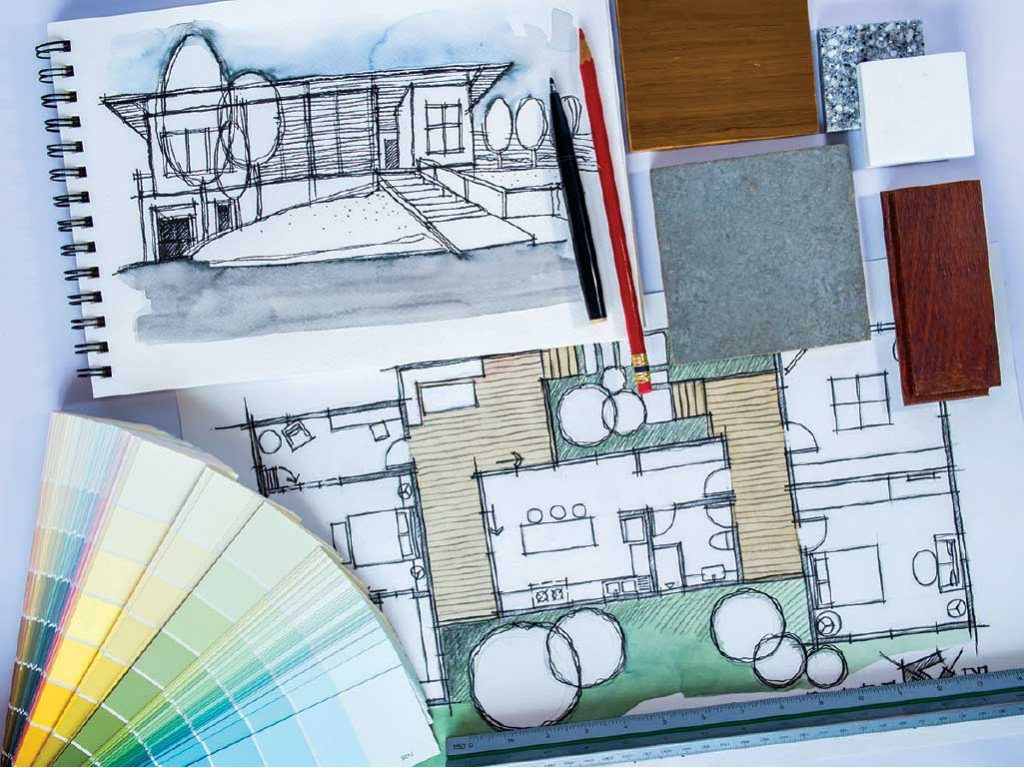
You have the resources to turn your house into the dream home you’ve always wanted. Now, what? Here are some tips to help you plan your remodel.
Compile your wish list.
Prioritize your list by identifying what projects and features are important to you and your lifestyle. Use your list to determine the scope and budget of your remodel. Consider breaking your project into phases to make it more manageable if you have a big list.
Select your contractor — carefully.
Personal and professional referrals can help you narrow your search for a quality contractor. Find someone you trust professionally, who understands your taste, budget and lifestyle. Make sure your contractor has the bandwidth of employees or subcontractors to complete the work in a timely fashion. Be sure insurance is in place.
Set your budget, with contingencies.
Remodeling projects — especially those involving older homes — often reveal surprises that require you to re-evaluate your budget and timeline. For best success, allocate 15 to 20 percent of the project estimate for contingencies. If the project nears completion with your contingency budget still in place, you could upgrade the finishing touches.
Review the contract before signing.
Once you’ve agreed on the scope of work , timelines and how contingencies will be handled, your contractor should provide a detailed contract that clearly documents key features or unique aspects of the project. Check that it includes a lien waiver clause, which ensures subcontractors and suppliers will have been paid before you make the final payment.
Understand how you’ll pay.
Most contractors require a down payment to get your project rolling. The remaining budget is usually paid in regular installments or as major work is completed (i.e., electrical work, plumbing). The difference between these options can be significant. Review your budget with a financial professional who can help you manage your cash flow.
Keep remodeling receipts on file.
Energy efficiency improvements resulting from your remodel may be eligible for tax credits through 2016. And if you sell your home down the road, your remodeling costs may help reduce your capital gains tax. To be eligible, you must show that these expenses enhance the value of your home and are not for general upkeep.
MICHAEL W. K. YEE, CFP
1585 Kapiolani Blvd., Ste. 1100, Honolulu
808-952-1222 ext. 1240 | michael.w.yee@ampf.com
Michael W. K. Yee, CFP®, CFS®, CLTC, CRPC®, is a Financial Advisor, Certified Financial Planner ™ practitioner with Ameriprise Financial Services, Inc. in Honolulu, HI with Na Ho’okele Financial Advisory Team, a financial advisory practice of Ameriprise Financial Services, Inc. He offers fee-based financial planning and asset management strategies and has been in practice for 29 years.
Investment advisory products and services are made available through Ameriprise Financial Services, Inc., a registered investment adviser.
Ameriprise Financial Services, Inc. Member FINRA and SIPC
©2016 Ameriprise Financial, Inc. All rights reserved. File #1397316


Leave a Reply